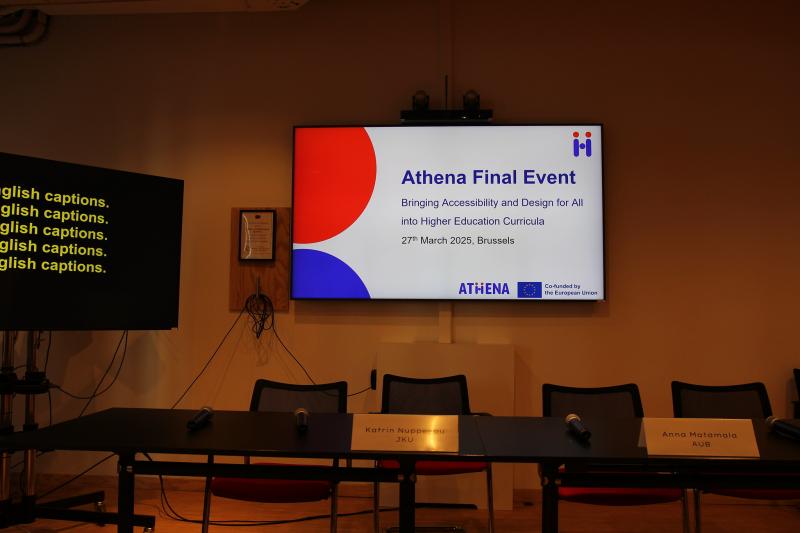
Brussels, April 3, 2025 – The European Disability Forum (EDF) hosted the final event of the Athena Project, funded by the Education, Audiovisual and Culture Executive Agency (EACEA) as part of the Erasmus+ Cooperation Partnership action. The event brought together stakeholders from across Europe educators, policymakers, students, and accessibility advocates from across Europe to discuss how to embed accessibility and universal design principles into higher education curricula.
The agenda included two main sessions. The first session focused on the results of the Athena Project, where project partners shared findings on the current state of accessibility in higher education and presented a set of recommendations. The second session featured a panel discussion on transforming higher education with a unified approach, involving perspectives from European Commission, ENQA, and the European Students' Union.
Main findings of the event:
- Current State of Accessibility: Analysis revealed that while accessibility is gaining importance, it is still not sufficiently integrated into higher education curricula. There is a need for systematic change to ensure inclusive education.
- Recommendations: Comprehensive guidelines were developed for policy makers, quality agencies, educational leaders, program creators, instructors, and user representatives. These recommendations aim to embed accessibility and universal design principles across all fields of knowledge.
- Cooperation and training: Emphasis was placed on the need for collaboration among all stakeholders and the provision of training opportunities for educators to raise awareness and improve implementation of accessibility principles.
Key publications of the Athena Project:
- Recommendations: Detailed guidelines for integrating accessibility and universal design into higher education curricula, addressing various stakeholders. Sample Modules for easy adoption in different disciplines, providing practical examples of how to incorporate accessibility principles. [Link]
- Position-Policy Paper: A comprehensive paper outlining the need for systemic change and the integration of accessibility and universal design in higher education. [Link]
- Report on consultation and cooperation: A report describing the process of drafting the recommendations, assessing their feasibility, identifying potential challenges, and gaining insight into practical strategies for implementation. [Link]
- Log in to post comments